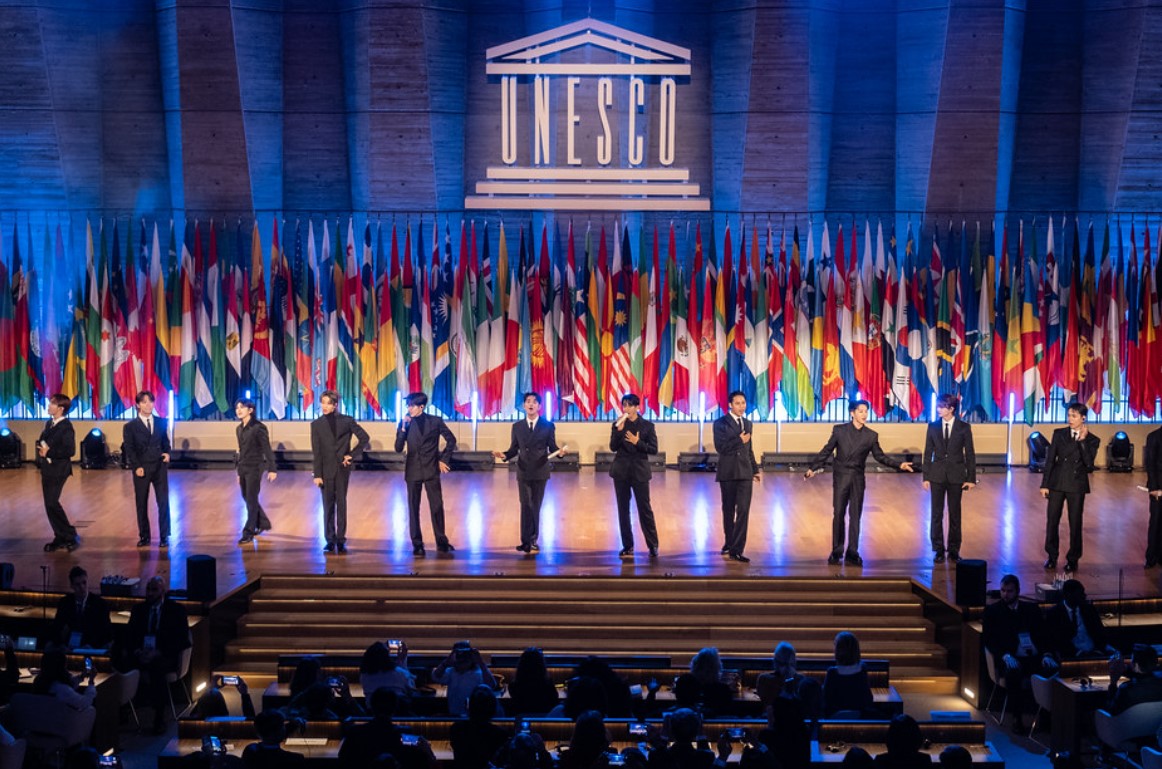The United States is once again pulling out of UNESCO — the UN’s cultural, scientific, and educational agency — reigniting a decades-long pattern of engagement and exit. This latest withdrawal, announced Tuesday, is rooted in long-standing concerns about the agency’s stance on Israel and the inclusion of Palestine as a full member.
It’s the second time the U.S. has left under a Trump administration, and it comes only two years after rejoining during the Biden presidency. The exit won’t be immediate; it takes effect at the end of December 2026.
A Repeating Story, With Familiar Frustrations
This isn’t new ground for the United States. It’s the third time Washington has withdrawn from UNESCO.
The first was back in 1984 under President Ronald Reagan, who argued the agency was mismanaged and politicized. Then again in 2018, under President Donald Trump, citing what he called anti-Israel bias. Now, history repeats itself.
Tammy Bruce, the State Department spokesperson, made it clear this latest move is about values. She said UNESCO had “lost credibility” and was “pushing divisive social and cultural causes.”

The Palestine Question at the Heart of the Exit
One issue keeps coming up — Palestine’s full membership in UNESCO.
UNESCO admitted Palestine as a member state in 2011. Since then, the U.S. and Israel have both repeatedly clashed with the agency over resolutions and language viewed as hostile to Israel’s sovereignty claims and historical narrative, especially regarding Jerusalem.
Bruce emphasized that point again this week, calling the 2011 move “highly problematic.” She also said it contradicted U.S. foreign policy and contributed to what she described as “anti-Israel rhetoric.”
It’s worth noting: the U.S. stopped paying dues to UNESCO the same year Palestine was admitted.
UNESCO Pushes Back, But Knows the Drill
UNESCO officials didn’t exactly act shocked.
In fact, Director General Audrey Azoulay sounded almost resigned. She said she “deeply regrets” the U.S. decision but acknowledged the agency had “prepared for it.” There were no fireworks — just a steady tone of disappointment and defiance.
She pushed back on the anti-Israel claims, pointing to UNESCO’s efforts in Holocaust education and anti-antisemitism initiatives. “These claims … contradict the reality,” she said.
That wasn’t all. Azoulay added that political tensions inside UNESCO had eased in recent years, calling the U.S. withdrawal outdated. Her message was clear: the organization has moved on, and perhaps Washington hasn’t.
Still, she left the door open for the U.S. to return.
Money Talks, But Not Like It Used To
Pulling out of UNESCO again won’t be painless. The U.S. is still one of its bigger donors — but not as dominant as before.
UNESCO has diversified. After the 2011 funding freeze by the U.S. and Israel, the agency learned to operate with leaner resources and new partners. Today, American contributions make up about 8% of the overall budget — important, yes, but not crippling if gone.
That’s a drop from earlier decades when U.S. support made up roughly a quarter of the budget.
-
In 2023, the U.S. rejoined with an immediate $150 million pledge to cover back dues
-
Current yearly contributions average about $70 million
-
UNESCO’s total annual budget now exceeds $1.3 billion, with increased support from European and Gulf countries
Azoulay said there are no staff cuts planned, but adjustments will be needed.
Politics Loom Over Decision as Trump Eyes Return
While framed as a policy move, the decision lands with heavy political weight.
It follows a review ordered by the Trump team earlier this year, part of a broader reassessment of U.S. involvement in multilateral institutions. According to insiders, the decision was expected internally, especially given that rejoining UNESCO in 2023 was driven by then-President Joe Biden — Trump’s chief political rival.
UNESCO officials were already bracing for it.
The U.S. election calendar only added more fuel. Trump is campaigning for a return to the White House in 2025, and leaving UNESCO again aligns neatly with his America-first message — less international entanglement, more sovereignty.
A Long and Complicated Relationship
To put it mildly, America’s history with UNESCO is rocky.
Founded in 1945 after World War II, the agency was meant to promote global cooperation in education, science, and culture. But Washington has often viewed it through a geopolitical lens. In 1984, President Reagan left, calling it bloated and sympathetic to the Soviet bloc.
Two decades later, President George W. Bush rejoined, saying the U.S. needed to be at the table.
That optimism didn’t last. The 2011 decision to admit Palestine reignited old tensions, and in 2017 Trump declared the U.S. would walk away again. That withdrawal took effect in 2018. Now, under his influence once more, the U.S. is set to do it all over again.
Some things, it seems, just don’t change.
































